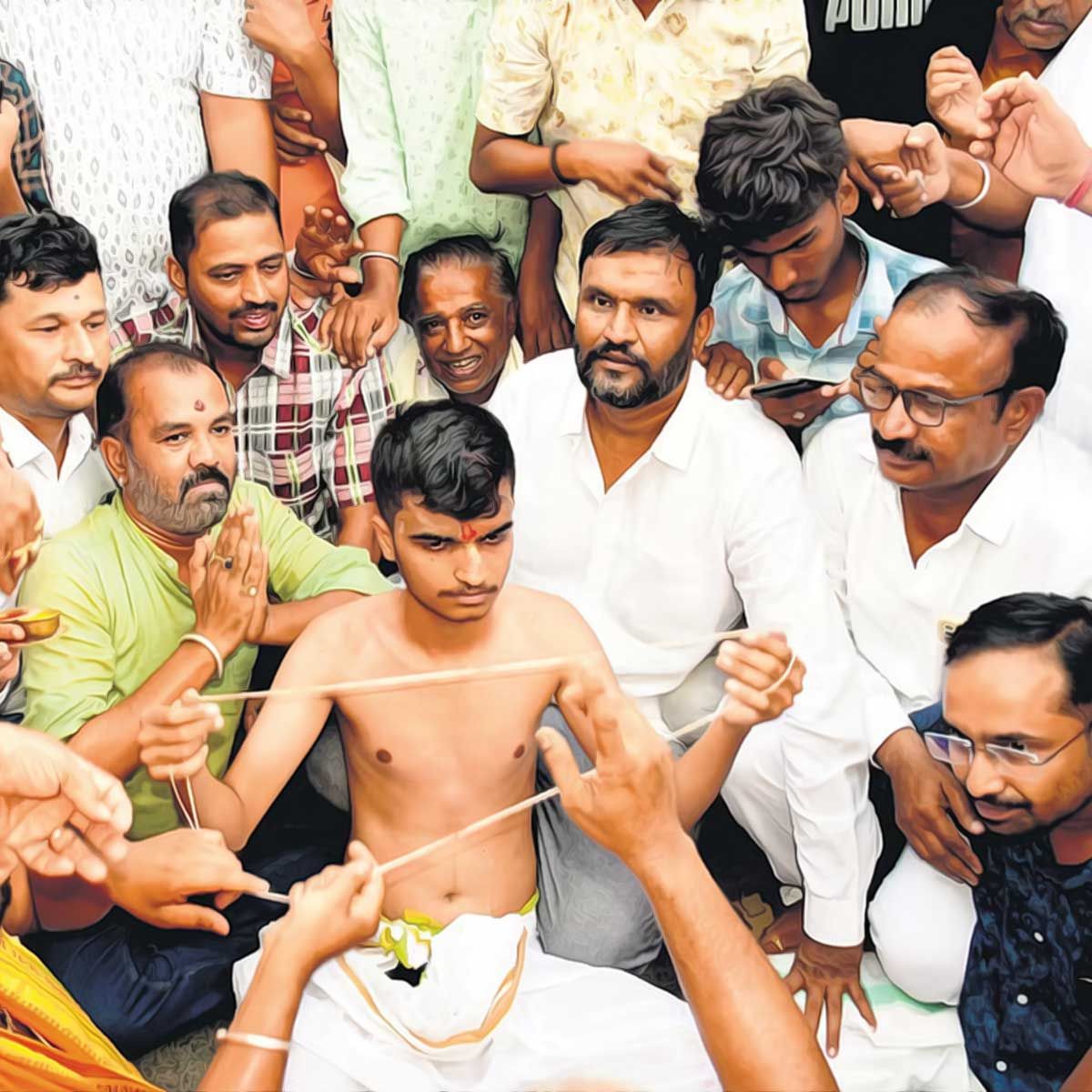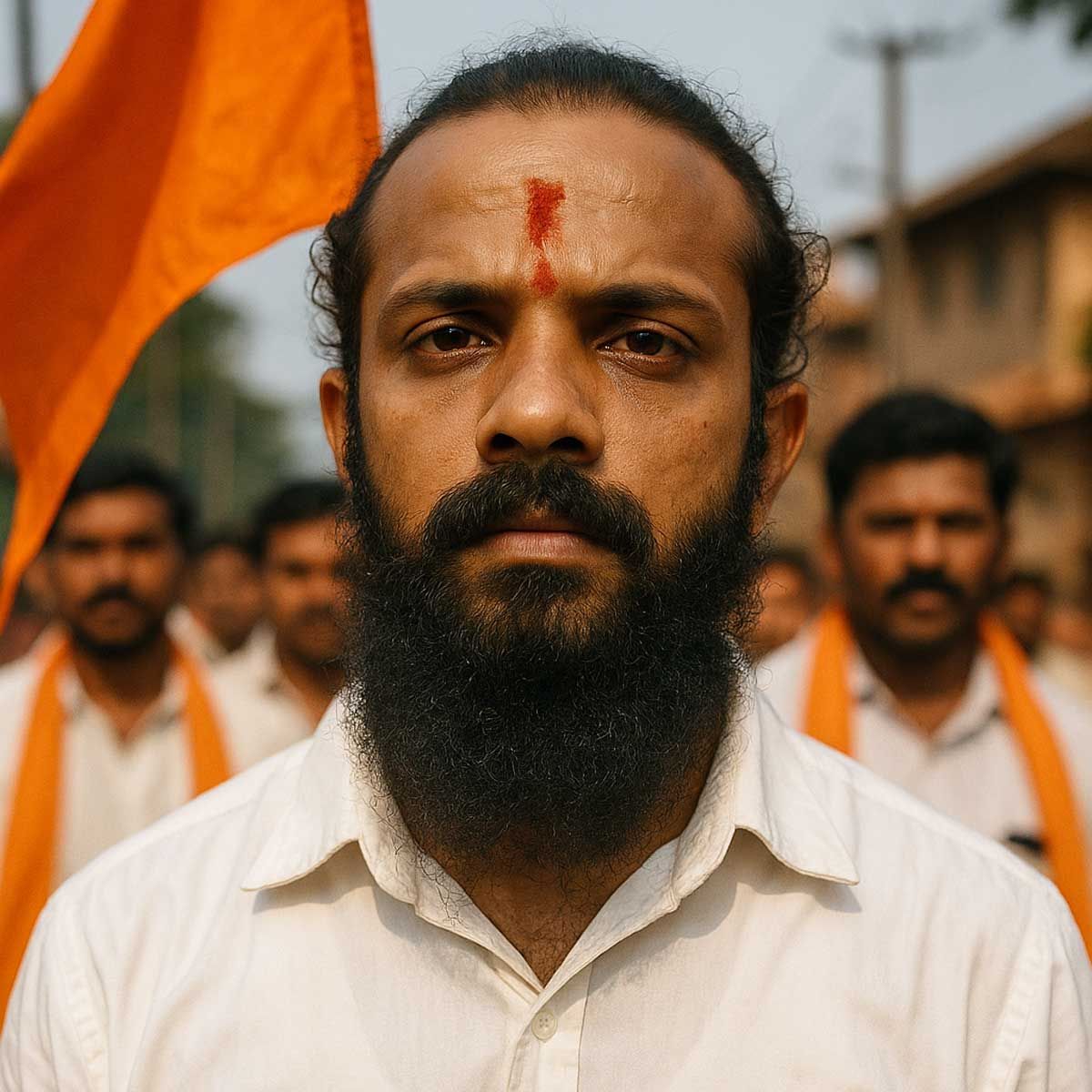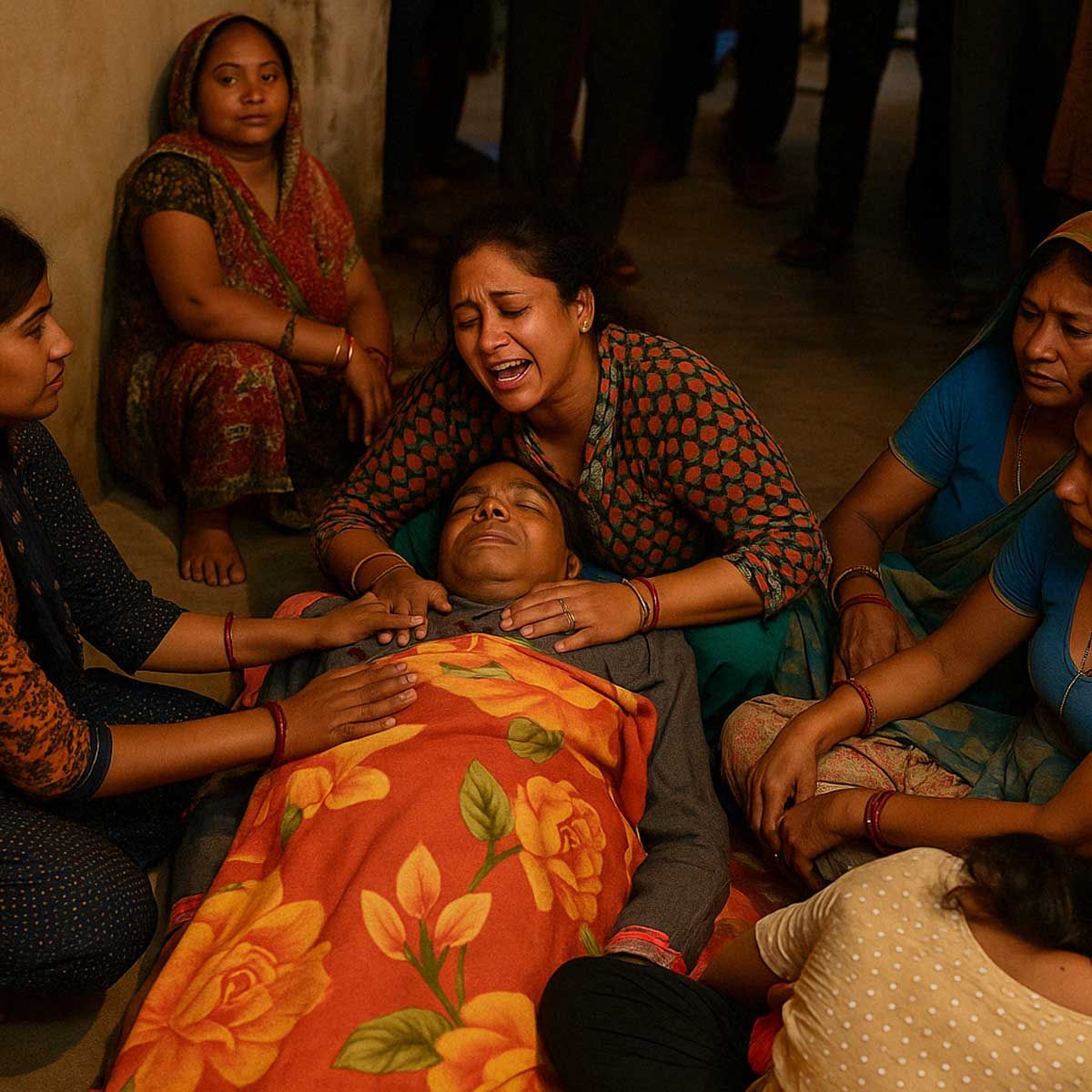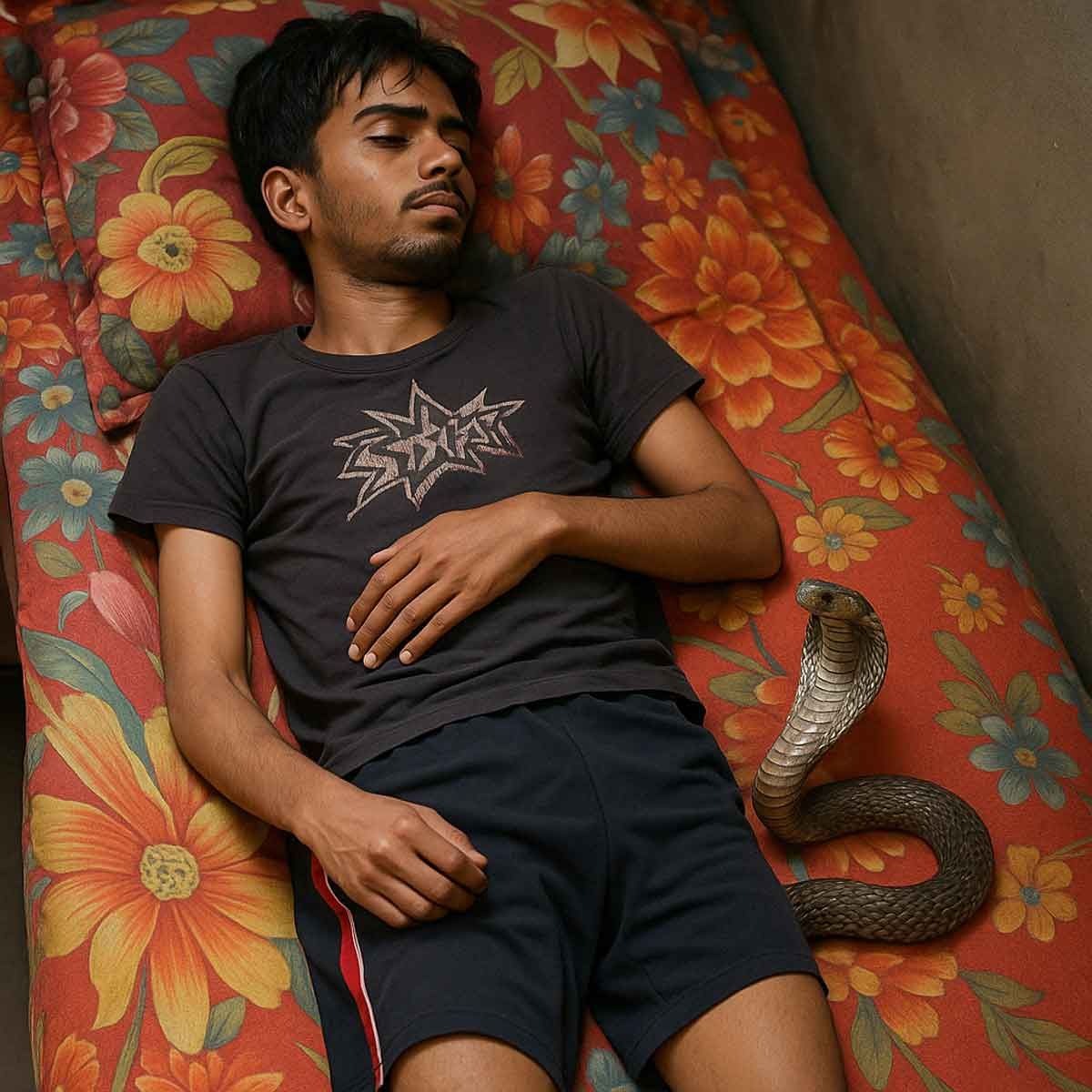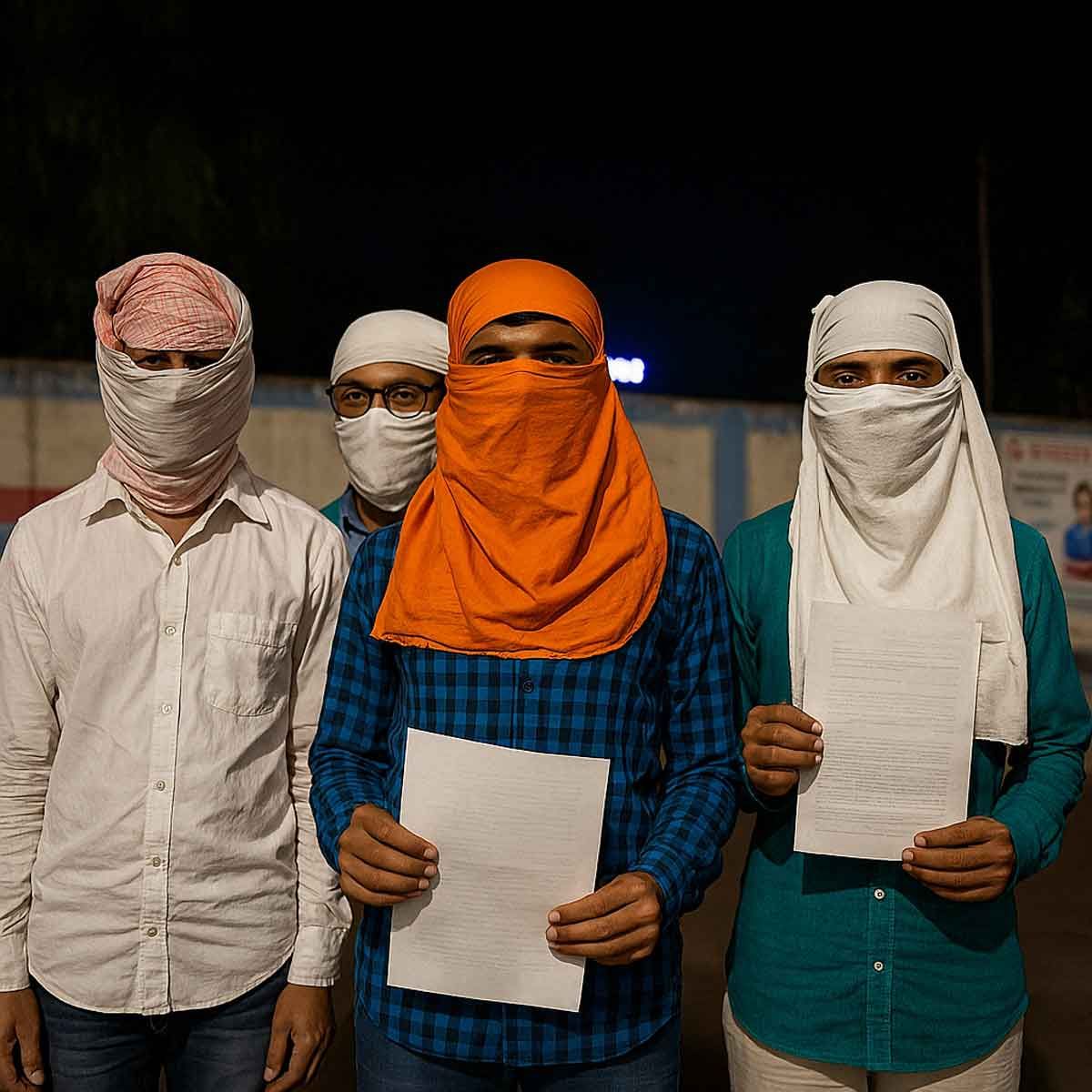More Coverage
Twitter Coverage
Satyaagrah
Written on
Satyaagrah
Written on
Satyaagrah
Written on
Satyaagrah
Written on
Satyaagrah
Written on
JOIN SATYAAGRAH SOCIAL MEDIA
Congress cries foul over NHRC appointments, pushing Justices Rohinton, Joseph, Muralidhar, and Qureshi—criticized for Ayodhya, Delhi riots rulings, selective secularism, media freedom bias, Collegium transfer claims, and undermining judicial impartiality
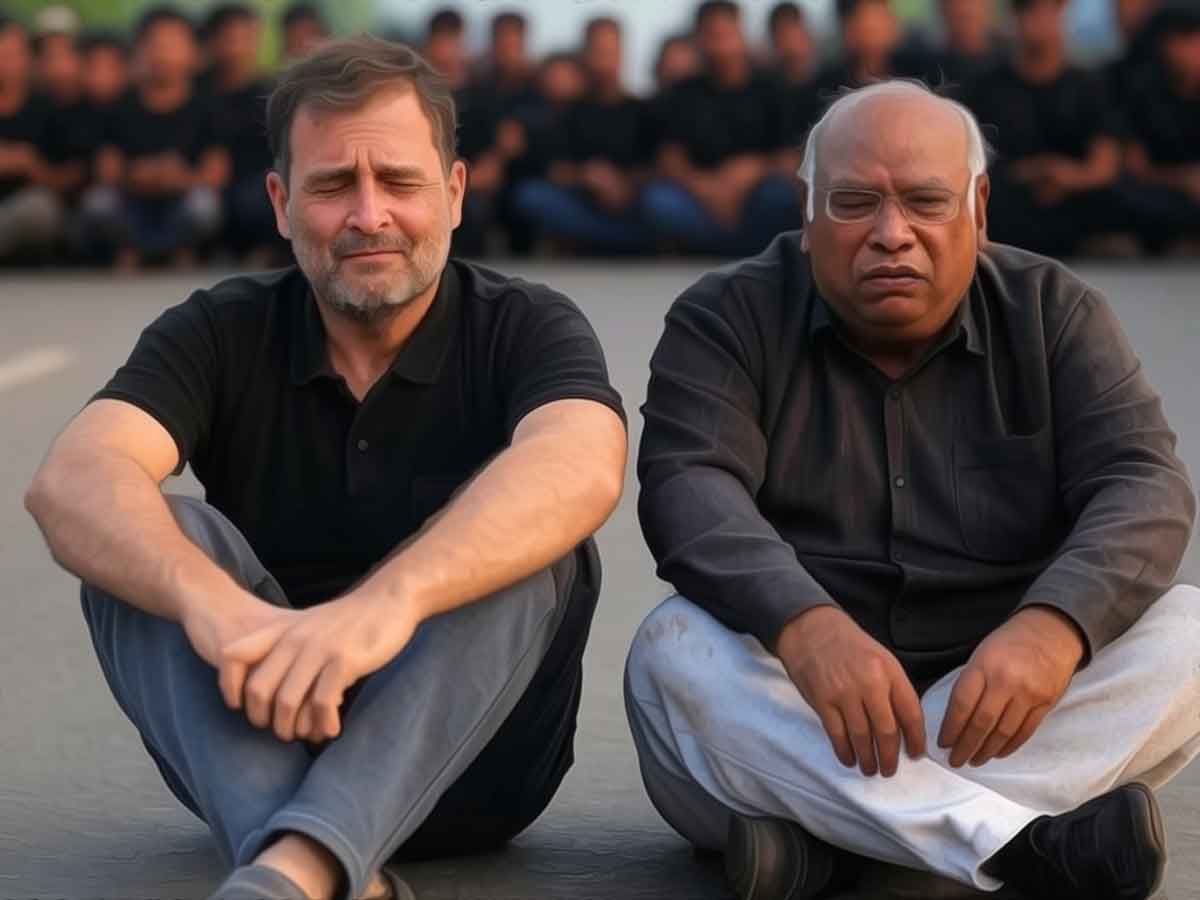
On 23rd December, the President of India, Droupadi Murmu, appointed retired Justice V Ramasubramanian as the Chairperson of the National Human Rights Commission (NHRC). The announcement also included the appointments of Priyank Kanoongo and retired Justice Bidyut Ranjan Sarangi as Members of the Commission. Justice Ramasubramanian is set to take charge of a position that has been vacant since June this year, following the completion of retired Justice Arun Kumar Mishra's tenure.
|
Congress leaders write dissent note over NHRC selection
On 24th December, Congress leaders Rahul Gandhi and Mallikarjun Kharge expressed dissatisfaction with the process of selecting the NHRC Chairperson. In a dissent letter, they called the selection procedure a “pre-determined exercise” and accused it of ignoring the “established tradition of mutual consultation and consensus.”
Both Gandhi and Kharge, members of the high-powered selection committee headed by Prime Minister Narendra Modi, highlighted what they called "fundamental flaws" in the process. They alleged that the committee relied on its numerical strength to finalise the appointments while sidelining “legitimate concerns” raised during deliberations.
Their letter explicitly stated, “The selection process adopted by the Committee was fundamentally flawed. It was a pre-determined exercise that ignored the established tradition of mutual consultation and consensus. This departure undermines the principles of fairness and impartiality, which are critical to the credibility of the Selection Committee.”
Interestingly, Rahul Gandhi and Mallikarjun Kharge had recommended the names of retired Justice Rohinton Fali Nariman and Justice Kuttiyil Mathew Joseph for the role of NHRC Chairperson. They argued that both individuals “possess the requisite merit” and represent marginalised communities, which would enhance the NHRC’s inclusivity. The letter described Justice Nariman as “a distinguished jurist from the minority Parsi community, renowned for his intellectual depth and unwavering commitment to constitutional values.” The Congress leaders added that his appointment would have sent “a strong message about the NHRC’s dedication to representing India’s pluralistic society.”
For the positions of NHRC members, the Congress leaders proposed the inclusion of Justice S Muralidhar and Justice Akil Abdulhamid Qureshi. They stressed in their letter that “Their inclusion would contribute to the NHRC’s effectiveness and its commitment to diversity.”
Gandhi and Kharge also criticized the finalised selections for their lack of diversity, arguing that this undermines the NHRC’s ability to represent India’s varied regional, caste, and religious composition. The dissent note emphasized, “The NHRC’s credibility and effectiveness depend on its ability to embody the diversity and inclusiveness that define India’s constitutional ethos. By neglecting this critical principle, the Committee risks eroding public trust in this esteemed institution.”
|
Who is retired Justice Rohinton Fali Nariman?
The first name highlighted in the Congress dissent letter is that of retired Supreme Court judge, Justice Rohinton Nariman, who recently courted controversy over his remarks on the 2019 Ayodhya verdict. Justice Rohinton Fali Nariman, born on 13th August 1956, served as a judge of the Supreme Court of India. Before his appointment to the bench, he had an illustrious career as a senior counsel and also held the position of Solicitor General of India. However, his career has often been marked by controversies that extend beyond his judicial contributions.
During a lecture, Justice Nariman described the Ayodhya verdict as a “mockery of justice” and claimed it undermined secularism by allegedly disregarding the Places of Worship Act. He argued that the Act explicitly exempted the Ayodhya land dispute from its scope. Justice Nariman further criticised the Hindu community for acting “outside the law” and expressed disappointment over the failure to rebuild a mosque on the disputed site, calling it a “travesty of justice.”
Interestingly, Justice Nariman's father, Fali S. Nariman, a prominent lawyer, had also opposed the Ram Mandir movement and expressed unease about Yogi Adityanath, a monk, serving as the Chief Minister of Uttar Pradesh. This familial perspective appears to align with Rohinton Nariman’s criticisms, which often ignite debates over selective secularism and interpretations of Hindu traditions.
Justice Nariman's remarks have continued to stir controversies. In March 2023, he openly criticised the Government of India for banning the BBC documentary “India: The Modi Question,” which accused then-Chief Minister Narendra Modi of involvement in the 2002 Godhra riots. While the documentary was banned for its misleading content, Justice Nariman condemned the ban, calling it a setback for media freedom and suggesting that India had “a long way to go” in protecting press rights.
He further linked the Government's tax raids on BBC India’s offices to the documentary’s release. Justice Nariman dismissed substantial evidence pointing to the broadcaster’s tax evasions in India and internationally, fuelling further debates about his selective criticisms and the credibility of his arguments.
|
Who is retired Justice Kuttiyil Mathew Joseph?
Justice Kuttiyil Mathew Joseph, born on 17th June 1958, is a former Supreme Court judge of India. He completed his education at Kendriya Vidyalaya, Loyola College, and Government Law College in Ernakulam before starting his legal practice in 1982. Justice Joseph served as the Chief Justice of the Uttarakhand High Court before being elevated to the Supreme Court in August 2018. He retired in June 2023 after a notable yet controversial career.
During his tenure, Justice Joseph faced criticism for his conduct in court, particularly during hearings on sensitive issues such as hate speech. In one such hearing, when calls for genocide against Hindus were discussed, his response sparked outrage. He smiled and made remarks that were perceived as biased and insensitive toward the Hindu community’s concerns. Solicitor General Tushar Mehta, who highlighted hate speeches targeting Hindus, was met with a response from Justice Joseph referencing Periyar, an attempt to justify such speeches. This handling of the case led to widespread criticism, with many questioning Justice Joseph’s impartiality and fairness in addressing critical issues.
Another instance of controversy arose when Congress leader Rahul Gandhi faced disqualification after being sentenced in a defamation case. During a related hearing involving the disqualification of another lawmaker, Justice Joseph criticised the legal provision, stating, “But this section is very drastic.. that is why you have to be careful thinking about the sentence. If it’s 14 years.. then imagine after another 6 years…” This comment referred to the section of the law which mandates that a lawmaker remains disqualified from contesting elections for six years after their release from jail.
These episodes during his judicial career have drawn sharp reactions, with Justice Joseph’s rulings and comments often becoming focal points of public debate on judicial impartiality and the interpretation of laws.
|
Who is retired Justice S Muralidhar?
Justice S Muralidhar, born on 8th August 1961, served in the Delhi High Court from 2006 to 2020 before being transferred to the Punjab and Haryana High Court. In January 2021, he was appointed as the Chief Justice of the Orissa High Court, where he served until his retirement in August 2023.
His transfer from the Delhi High Court in February 2020 became a subject of controversy. The left-liberal section of society alleged that it was linked to his rulings during the Delhi riots case, where he directed the police to protect victims and provide medical assistance. However, the government clarified that the transfer was recommended by the Supreme Court Collegium on 12th February 2020, well before his rulings in the case. The government further stated that the transfer followed proper procedures, including obtaining Justice Muralidhar’s consent. Despite this, in 2023, Justice Muralidhar remarked that he did not understand “why the central government was upset” with his verdict in the Delhi riots case.
Allegations that his transfer was politically motivated or abrupt were later proven false. The case he presided over during the riots was not originally assigned to him; he heard it on an urgent basis as the Chief Justice was unavailable. His transfer was part of a routine decision made by the Collegium, and similar transfer notifications were issued for other judges. These facts demonstrated that claims of government retaliation over his verdict in the Delhi riots case were baseless.
In 2024, the Delhi High Court closed contempt proceedings against scientist Dr Anand Ranganathan, stating that it was a “sheer wastage” of the court’s time. The court noted that Ranganathan did not make any adverse comments against Justice Muralidhar but merely expressed support for those who had. The contempt case originated in 2018 and involved allegations against Dr Anand Ranganathan, Vivek Agnihotri, Swarajya Magazine, and others regarding relief provided by Justice Muralidhar to Gautam Navlakha, who was accused under the UAPA.
Who is retired Justice Akil Abdulhamid Qureshi?
Justice Akil Abdulhamid Qureshi, born on 7th March 1960, is a former Chief Justice of the Rajasthan High Court and the Tripura High Court. He also served in the Gujarat and Bombay High Courts, including a brief tenure as the Acting Chief Justice of the Gujarat High Court. His judicial career has been overshadowed by controversies, primarily surrounding his non-elevation to the Supreme Court and claims of victimhood.
In 2019, Justice Qureshi was transferred to the Tripura High Court after the Union Government declined the Collegium’s recommendation to appoint him as Chief Justice of the Madhya Pradesh High Court. This transfer led to a controversy, framed by his supporters as an affront to his stature. In his farewell speech, Justice Qureshi commented that the government held “negative perceptions” about him, describing this as a “certificate of independence” for his judicial conduct. However, such transfers are part of the routine procedures established by the Collegium. Despite this, the incident was leveraged by platforms like The Wire to criticize the government and the judiciary.
Justice Rohinton Nariman and Senior Advocate Kapil Sibal later used Justice Qureshi’s career as an example to critique the judicial system. Justice Nariman stated that independent judges are “pushed out,” while Sibal remarked, “If judges of the High Court can be transferred, if they give decisions in a particular way – Justice Muralidhar is an example, Justice Kureshi is an example – then why should the subordinate court judge not be afraid of his transfer?”
However, such comments seemed more narrative-driven than fact-based. They ignored the decisive role of the Collegium in judicial appointments and transfers, attributing undue blame to the government. This selective outrage failed to acknowledge that the judiciary’s internal mechanisms primarily govern these decisions.
Conclusion
The Congress’s advocacy for appointing judges like Justice Rohinton Nariman and Justice KM Joseph to the NHRC raises significant questions about their judgment. Each of the four judges named by the Congress, including Justices Muralidhar and Qureshi, has faced notable criticism for remarks or actions perceived as undermining judicial impartiality. By promoting individuals whose careers have sparked public debate instead of focusing on unity and institutional integrity, the Congress’s strategy appears to prioritize political posturing over genuine efforts to strengthen the NHRC.
 Support Us
Support Us
Satyagraha was born from the heart of our land, with an undying aim to unveil the true essence of Bharat. It seeks to illuminate the hidden tales of our valiant freedom fighters and the rich chronicles that haven't yet sung their complete melody in the mainstream.
While platforms like NDTV and 'The Wire' effortlessly garner funds under the banner of safeguarding democracy, we at Satyagraha walk a different path. Our strength and resonance come from you. In this journey to weave a stronger Bharat, every little contribution amplifies our voice. Let's come together, contribute as you can, and champion the true spirit of our nation.
 |  |  |
| ICICI Bank of Satyaagrah | Razorpay Bank of Satyaagrah | PayPal Bank of Satyaagrah - For International Payments |
If all above doesn't work, then try the LINK below:
Please share the article on other platforms
DISCLAIMER: The author is solely responsible for the views expressed in this article. The author carries the responsibility for citing and/or licensing of images utilized within the text. The website also frequently uses non-commercial images for representational purposes only in line with the article. We are not responsible for the authenticity of such images. If some images have a copyright issue, we request the person/entity to contact us at This email address is being protected from spambots. You need JavaScript enabled to view it. and we will take the necessary actions to resolve the issue.
Related Articles
- How Nehru's Govt helped China in conquering Tibet and let go of it's centuries old friend
- Netizens trend #SuspendUrbanDictionary, UP police takes cognisance of the insulting ‘definition’ of Mayawati by one Nazia Khan: What happened
- 'Come on guys, China & India happened way before Ukraine. It’s not a clever argument', EAM S Jaishankar lambasted hypocrisy of west: calls out Europe’s duplicity on Russian energy purchase and pressure on India, calls WSJ report false
- Bengaluru court orders suspended JD(S) MP Prajwal Revanna into SIT custody until June 6 following arrest at Bengaluru Airport for sexual abuse allegations; Ex-Karnataka CM Bommai stresses the need for a fair investigation, hinting at political motivations
- Himanta Biswa Sarma spearheads transformative changes in Assam, unveiling a robust plan to ban polygamy and combat child marriage, with nearly 98% public support, this legislative leap aims to shape a brighter, equitable future for Assam's residents
- Google removes ‘Ghazwa e Hind’ app from play store after uproar
- 20 YouTube channels and 2 websites blocked by the Indian Govt for having links with Pakistan to spread anti-India propaganda
- "कहाँ से आते हैं ये लोग": Maratha activist Jarange Patil provocatively demands OBC quota reservations for Muslims, a separate religion not akin to Hindu castes like Marathas, sparking debates and suggesting a strategy to disrupt OBC unity in Maharashtra
- Soft-conditioning of Hindu minds to normalize grooming jihad in Bengali TV serial ‘Khorkuto’
- Giant hypocrite: Activist confronts Twitter CEO over censorship, asks why he ‘hates Jews and Conservatives’
- On 16th Aug 1946, during Ramzan's 18th day, Direct Action Day aimed to provoke Muslims by mirroring Prophet Muhammad's victory at Badr, Gopal 'Patha', the Lion of Bengal, heroically saved Bengali Hindus & Calcutta from a planned genocide, altering history
- ‘Personal belief and rights of anyone cannot be imposed on the country, India will run as per the Constitution and not Shariyat’: CM Yogi Adityanath warns the supporters of ‘ghazwa-e-hind’
- "जब नाश मनुज पर छाता है": In a bold move, 62 villages in Western UP, led by the Dhankhar Khap Panchayat, have unanimously banned Congress and TMC leaders entry, defending the honor of their gotra and protesting the insult to VP Jagdeep Dhankhar
- Bengal: The Chilling Accounts Of Families Of Two BJP Workers Who Can Return Home Only If The Women Are ‘Given Up’ To Trinamool Gangsters
- Canadian Prime Minister Justin Trudeau who supported ‘protesting farmers’ in India is cribbing for exactly the same reason saying, 'Protestors in Canada do not have the right to block economy'















